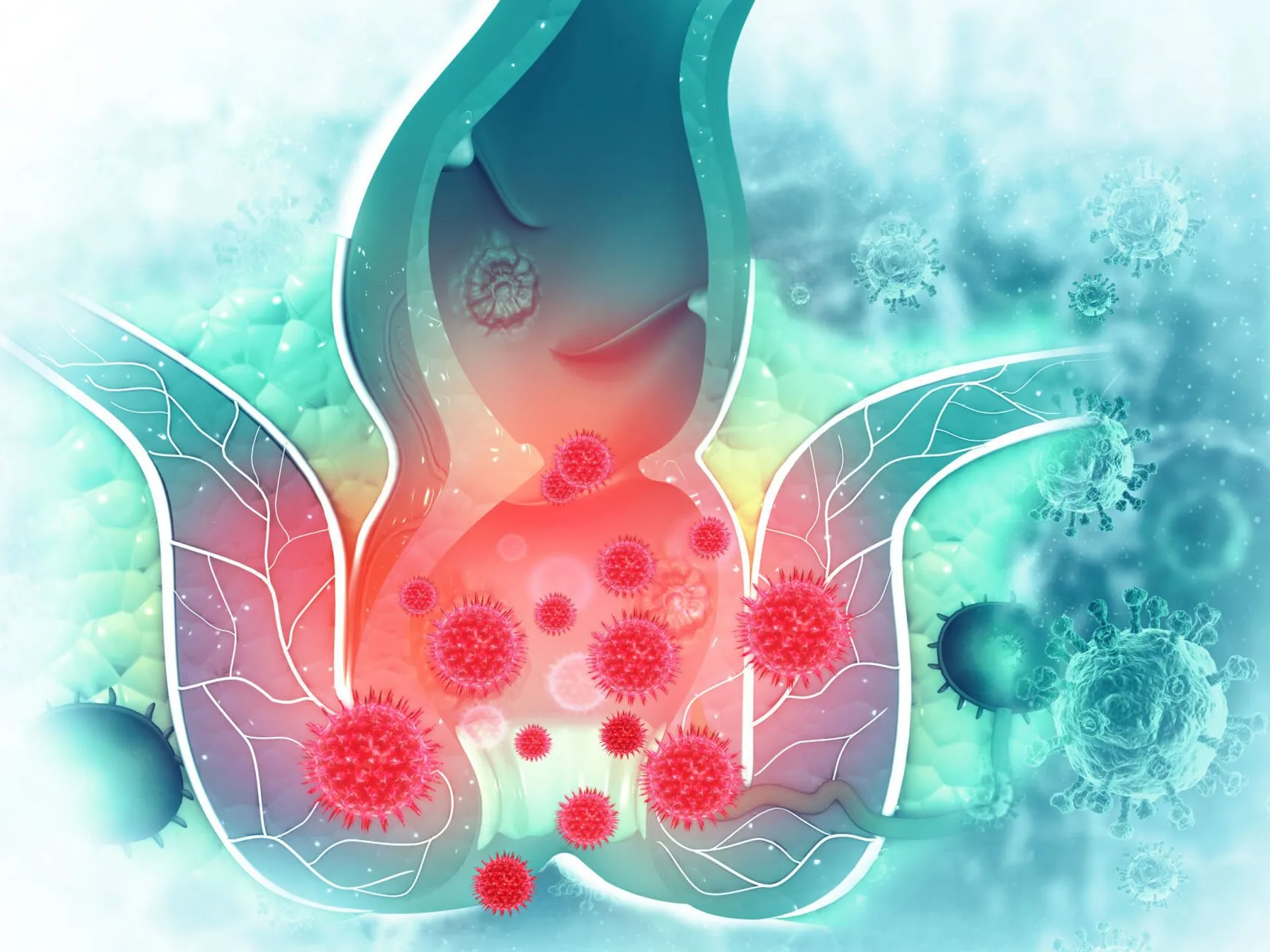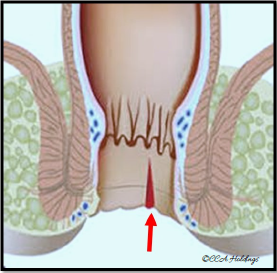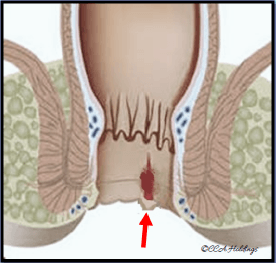Mount Elizabeth Novena Hospital #10-48/49
WHAT IS AN ANAL FISSURE?
An anal fissure is a small tear or crack in the skin that lines the anus. Symptoms of an anal fissure usually include pain and bleeding.
WHAT ARE THE SYMPTOMS OF AN ANAL FISSURE?
Symptoms of an anal fissure include sharp, severe pain during or following bowel movements. Other symptoms that may occur are bleeding, itching, and a malodorous discharge.
WHAT CAUSES AN ANAL FISSURE?
Anal fissures are caused primarily by trauma; anything that can irritate or cause lacerations to the inner lining of the anus. (E.g. Hard stools).
However, there are other non-traumatic causes such as diarrhea or inflammation of the anal canal.
Anal fissures may be acute (recent onset) or chronic (present for a long time or recurring frequently). Chronic fissures are often present with a small external lump called a skin tag or sentinel pile.
HOW CAN A FISSURE BE TREATED?
In acute fissures, medical (nonoperative) therapy is successful in the majority of patients. 90% of acute fissures will heal with conservative measures. To treat a fissure, one must first treat the root cause of the fissure.
Constipation:
High-fiber diet, stool softeners and plenty of fluids
Diarrhea:
Increase dietary fiber
Topical Creams:
Application of Zinc oxide, Preparation H, Anusol, or 1% hydrocortisone may help relieve symptoms.
Application of a 0.2% nitroglycerin ointment or calcium channel blockers has been shown to improve healing in acute and chronic fissures.
Botulinum toxin:
Injection of Botox into the anal sphincter muscle to relieve the anal spasm from the anal fissure.
WHAT CAN BE DONE IF A FISSURE DOESN’T HEAL?
If a fissure fails to respond to treatment, it should be re-examined. Constant scarring, hard or loose stool movements, or spasms of the internal anal sphincter muscle contribute to delayed healing. Other conditions such as infections, inflammatory bowel disease, and anal tumours may cause fissure-like symptoms and should be examined.
WHAT TO EXPECT DURING ANAL FISSURE SURGERY?
Surgery is a highly effective form of treatment for an anal fissure. Recurrence after surgery is low. The procedure is commonly called a Lateral Internal Sphincterotomy: a portion of the internal anal sphincter muscle is divided. This helps the fissure heal and decreases spasms.
Here's what you can expect during the procedure:
Incision and Drainage:
The surgeon makes an incision to open the fistula tract and remove any infected tissue or debris. In the event that a sentinel pile is found present, it too may be removed to promote healing of the fissure.
Closure of Fistula Tract:
Once the tract is thoroughly cleaned, it may be closed with sutures or left open, depending on the surgeon's judgment and the nature of the fistula.
Placement of Seton:
In some cases, a seton (a piece of surgical thread or rubber band) may be placed through the fistula tract to keep it open and allow proper drainage.
Possible Additional Procedures
: Depending on the complexity of the fistula and any associated complications, additional procedures such as a fistulotomy, advancement flap repair, or placement of a plug or bioabsorbable material may be performed.WHAT IS THE COST OF ANAL FISSURE SURGERY IN SINGAPORE?
The cost of anal fissure surgery in Singapore can vary depending on several factors, including the type of procedure performed, the complexity of the surgery, the healthcare provider or hospital chosen, and any additional services or amenities provided.
You should speak to your doctor and get an estimate based on your condition and health needs.
HOW LONG DOES THE HEALING PROCESS TAKE AFTER SURGERY?
Pain will often disappear in a few days and complete healing usually occurs within two to four weeks after surgery.
CALL YOUR
COLORECTAL DOCTOR IMMEDIATELY IF YOU EXPERIENCE THESE SYMPTOMS
Contact your doctor immediately if you:
-
Notice rectal bleeding
-
Have severe abdominal pain
-
Develop a fever
-
Feel very dizzy
-
Experience vomiting
-
Experience abdominal distention






